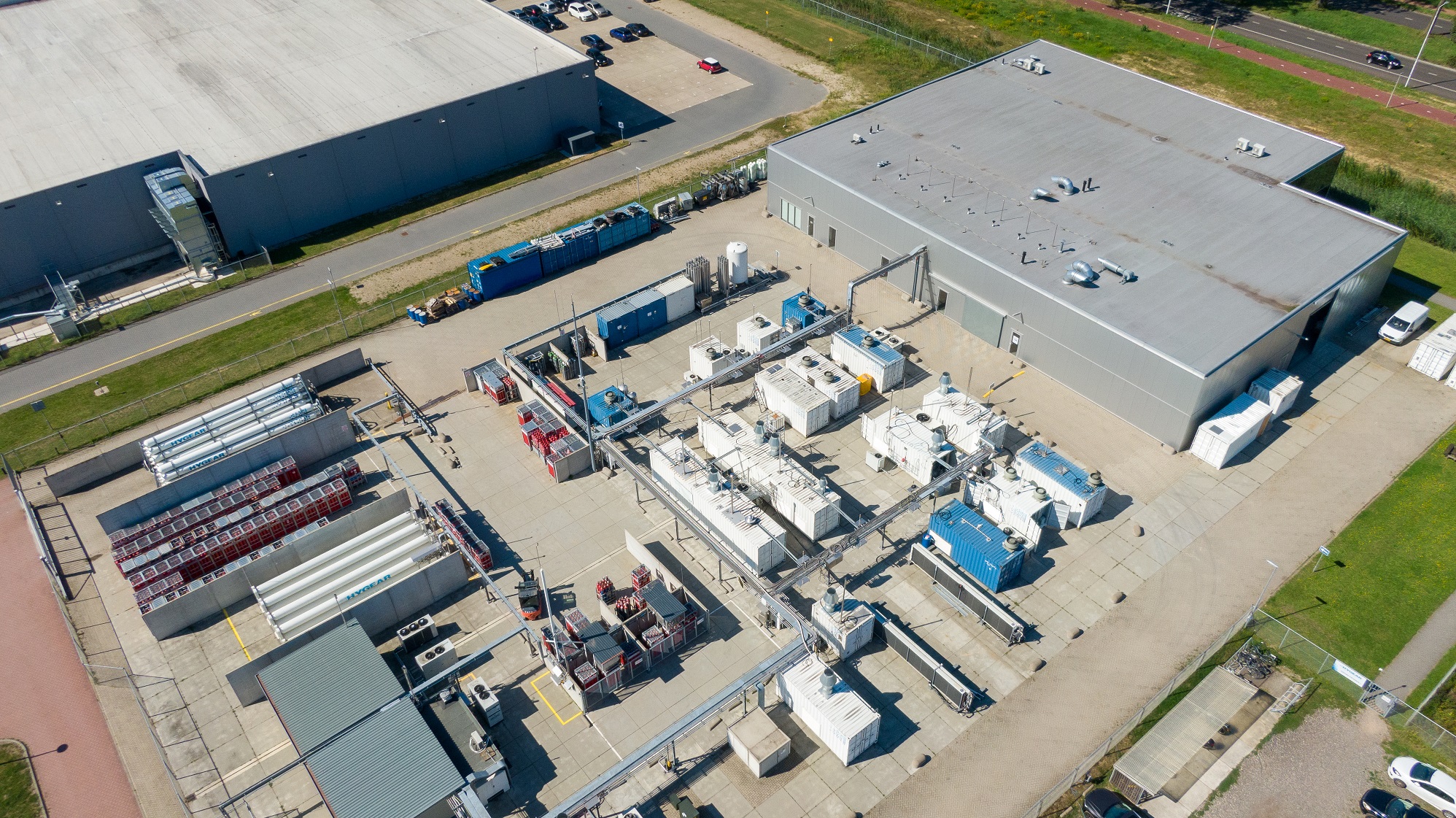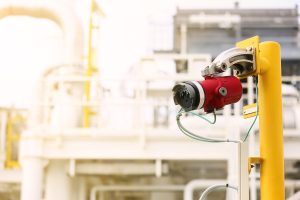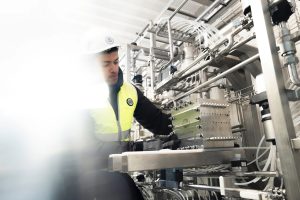The project targets the development of technology for producing e-methanol, a sustainable fuel alternative to conventional fuels for heavy-duty transport, including ships and aviation. Spanning a total of four years, the project is set to produce its initial batch of renewable methanol by the third quarter of 2025.
In this consortium, Bright Renewables is developing the methanol reactor technology, HyGear is providing a 1-MW electrolyser with PEM technology, and the University of Twente is researching heat exchange, vital for the process, and the most optimal way for scaling up the project using a twin-test reactor. Of the total €4 million subsidy provided, €600,000 is allocated specifically for the university’s research.
Explaining the innovative character of this project, Martin Bos, R&D Manager at HoSt Group, said: “The subsidy was granted due to our innovative design which focuses on process intensification. We’ve designed a technology that uses fewer materials and operates at lower temperatures and pressures than existing technologies, resulting in lower energy consumption and a reduced total cost of ownership.”
The project’s total funding comes from a ‘GroenVermogenNL’ subsidy, underpinned by the ‘Nationaal Groeifonds’. All intermediate steps and required technologies are engineered and developed in-house and in close local collaboration with the university around the corner.
The system with a capacity of 500 tons per year of grade AA e-methanol will be constructed at the site of HyGear in Arnhem, the Netherlands. There, it will utilize captured CO₂ and electricity sourced from unsubsidised solar and wind power produced within the Netherlands. This e-methanol system is for smaller-scale use and can be set up near local solar or wind farms. It can utilize sustainable electricity directly, helping to reduce grid congestion issues. Annually, the system can produce enough sustainable fuel for a large inland ship to travel 30,000 km with 10,000 containers.
Commenting on the importance of dynamic operation, Wim Brilman, professor at the University of Twente, said: “We want to investigate how predictable the reactor performs under the varying availability of sustainable energy. Being able to store excess renewable electricity in the form of methanol, helps to minimize grid congestion, maximizes the potential of solar and wind farms, and provides a CO₂ neutral fuel.”
Methanol, the simplest form of alcohol, is produced by combining hydrogen with carbon dioxide (CO₂) or carbon monoxide (CO) in a reactor, also known as methanol synthesis. As a liquid at room temperature and pressure, it serves as an efficient energy carrier or storage medium. In this e-methanol system, the CO₂ will be sourced from biogenic CO₂, captured from biogas plants or biomass- or waste-fired boiler plants, with (green) hydrogen supplied through electrolysis.






